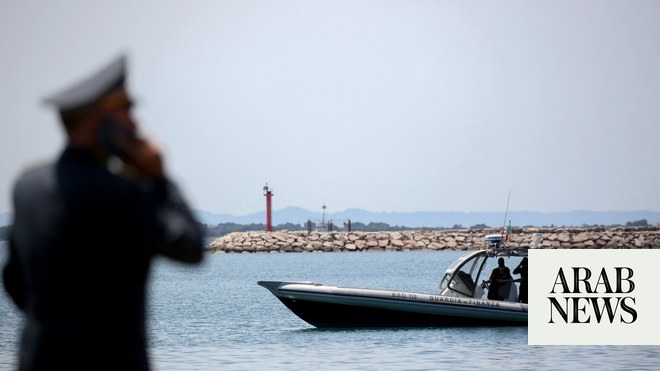DHAKA: Clashes between Bangladeshi protesters demanding the resignation of Prime Minister Sheikh Hasina and government supporters killed at least eight people on Sunday, including from stab wounds and bullets, police and doctors said.
Three were killed in northern Pabna district, two in northern Rangpur district, two in Dhaka's Munshiganj district and one in western Magura district, police said. and doctors at the hospital told AFP.
Asif Mahmud, one of the main protest leaders in the civil disobedience campaign, asked supporters to be ready to fight.
“Prepare the bamboo and free Bangladesh,” he wrote on Facebook on Sunday.
As the army intervened to help restore order after earlier protests, former army officers joined the student movement, and former army chief General Ikbal Karim Bhuiyan , changed his Facebook picture to red in a show of support.
Current army chief Waker-uz-Zaman addressed officers at the army headquarters in Dhaka on Saturday, telling them that “Bangladesh Army is the symbol of people's trust.”
“He has always stood in front of the people and will do it for the benefit of the people and for the needs of all the governments,” he said, according to the army's statement issued on Saturday.
The statement did not provide further details, and did not say whether the army supported the protest.
Demonstrations against job limits for civil servants led to riots in July that left more than 200 people dead in the worst unrest of Hasina's 15 years in power.
The military was briefly reinstated but people returned to the streets in large numbers this week in a non-cooperative movement aimed at weakening the government.
On Saturday, when hundreds of thousands of protesters marched in Dhaka, most of the police watched the rally.
A growing movement
The protests have grown into widespread anti-government protests across the South Asian nation of about 170 million people.
The mass movement includes people from all walks of life in Bangladesh, including film stars, musicians and singers, and rap songs calling for people's support have gone viral on social media.
“It's not about job limits anymore,” said Sakhawat, a young protester who gave only one name, as she scrawled graffiti on a wall at a protest site in Dhaka calling for He was called a “killer.”
“What we want is for the next generation to be able to live freely in this country.”
Opposition in support of the government is also expected.
Obaidul Quader, general secretary of Hasina's ruling Awami League, called on party activists to gather in “all wards of Dhaka city” and “number of districts” across the country to show its support for the government.
“We don't want to get into any kind of conflict,” Quader said.
The capital, Dhaka, was tense on Sunday, with few cars and buses on the streets of a city of 20 million people.
Hundreds of thousands of protesters are expected to gather in Dhaka and across the country.
Student protest
Students Against Discrimination, the group responsible for organizing the first protest, called for rallies across the country.
The demonstration will be held at the entrance to Dhaka, and the main rally will be held at Shahbagh Square in the center of Dhaka, where people gathered on Sunday morning.
“We will hold peaceful protests and rallies,” the group said in a statement on Saturday. “But if someone attacks us, we urge everyone to be ready with all the preparations.”
Students Against Discrimination appealed to their fellow citizens to stop paying taxes and utility bills from Sunday as pressure on the government.
They have also asked civil servants and workers in the country's economically vital garment factories to go on strike.
Hasina, 76, has ruled Bangladesh since 2009 and won a fourth straight election in January after running without a real opponent.
Human rights groups accuse the government of abusing the institution to consolidate its power and suppress dissent, including the extrajudicial killing of opposition activists.
Protests began in early July over the resumption of quotas, where more than half of government jobs are reserved for certain groups. This was reversed by the Bangladesh High Court.
